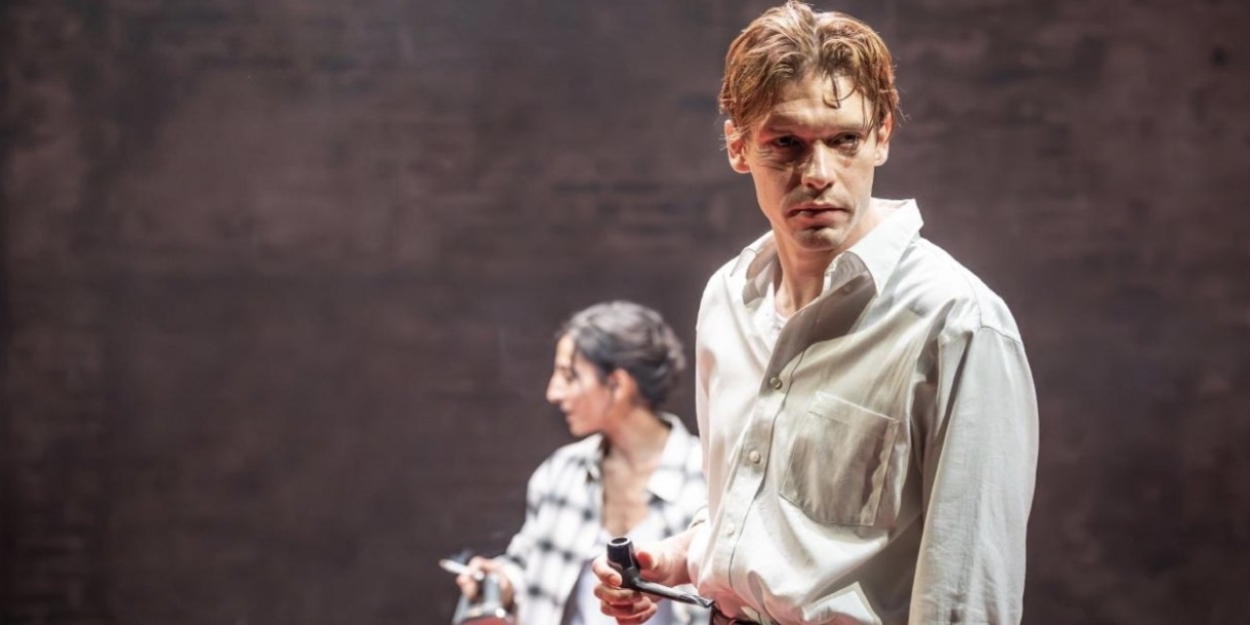Review Roundup: LOOK BACK IN ANGER/ROOTS at Almeida Theatre
Look Back in Anger and Roots play at the Almeida Theatre until 23 November.

Almeida Theatre is presenting a double bill of Look Back in Anger and Roots. Former Almeida Resident Director Atri Banerjee directs Billy Howle and Ellora Torchia in a new production of John Osborne’s play, alongside Arnold Wesker’s Roots.
The mirror these plays held up to 1950s society is angled towards 2024, with the two plays running alongside each other in repertory for 11 weeks, as part of the Almeida’s Angry and Young season.
See what the critics are saying...
Alexander Cohen, BroadwayWorld (Look Back in Anger): I can’t imagine what it must have been like to watch Look Back in Anger in 1956. To experience John Osborne gut the audience like a fish, all their grotesque innards splayed out in front of you is as intoxicating as it is nasty. Noël Coward supposedly walked out of the original production - understandable given that the entire piece is a middle finger to stuffy establishments. If Roots is the demure first part of the Almeida’s “Angry and Young” season, Look Back in Anger is the explosive finale. How could it not be when the human flamethrower Jimmy Porter is the burning star at the centre of its orbit?
Alexander Cohen, BroadwayWorld (Roots): Diyan Zora’s direction is surgically slick gently teasing out ideas with scalpel precision rather than flamethrower force. Initially she casts Roots as a museum piece, the stage rotates gingerly as if the characters are an exhibition display. We scan and scowl with analytical eyes only to be caught off guard when Beatie melts and swirls in a vortex of emotion. Soon it pulsates with a life of its own.
Arifa Akbar, The Guardian: The “angry young man” has not aged so well. At least, not John Osborne’s pugilistic sweet-stall seller in Look Back in Anger (★★☆☆☆). Having erupted on to the stage in 1956, he looks like a charmless, self-pitying tyrant here who weaponises his working-class chip against his wife.
The angry young woman has fared far better in Arnold Wesker’s Roots (★★★★☆), written in 1958, which comes as part of the Almeida’s Angry and Young season. Directed by Diyan Zora, this time the focus is on Beatie (also played by Clark), a woman returning home from London to her farming family in Norfolk. They are organising a welcome party for her beau, Ronnie, another working-class hero, in absentia, who has taught Beatie socialism.
Matt Wolf, London Theatre: The London theatrical ecosystem is an intriguing one. The Almeida has opened a blistering double bill of 1950s plays associated with the Royal Court, even as that new writing theatre has reclaimed attention with a new play, Giant, one could well imagine at the Almeida. No matter: the Almeida’s current pairing merits attention regardless of the address, placing John Osborne’s 1956 study in untrammelled bile, Look Back in Anger, with Arnold Wesker’s portrait of female self-improvement, Roots. This rare instance of theatrical repertory is essential viewing.
Fiona Mountford, iNews: Look Back in Anger (1956) by John Osborne is, famously, the play that blasted post-war culture out of its slumber of gentility and opened the floodgates to kitchen sink drama and modern theatre as we know it. Yet here’s the rub: almost no contemporary theatre fan will have seen it on stage, as this interminable bore of an often misogynistic rant is vanishingly rarely performed.
The emotional centre of the superior Roots is Beatie Bryant (rising screen star Morfydd Clark), a young woman home to visit her family of Norfolk farm labourers after three years in London. Clark winningly portrays her as brimming with life and new discoveries; all her talk is of her “intellectual” boyfriend Ronnie and his progressive ideas, a new way of thinking that both stimulates and bewilders her.
Tim Bano, Evening Standard: It’s a great bit of programming – Roots gives us an angry young woman, Look Back in Anger an angry young man – and fascinating to see two of the 20th century’s most discussed and dissected pieces of drama actually come alive on a stage. But there’s an imbalance: where Roots, for all its depth, can’t quite shake itself out of being a museum piece, you can still hear the ferocious roar of Look Back in Anger resonating loudly so many years later.
Reader Reviews

Videos

